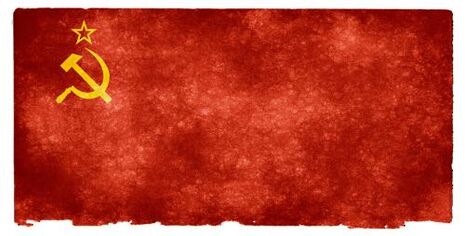Why King’s flag must stay
Leonardo Kellaway urges King’s not to lose its radical ethos by voting to remove the hammer and sickle flag

Over the last few weeks, King's has been embroiled in debates over whether or not the Soviet Flag should be hung in a communal area if it might invoke ‘memories of a repressive regime’. It appears to have polarised the college. On the one hand, we have the legitimate concerns of students who see the flag as a representation of the Soviet atrocities. On the other, we have “self-proclaimed revolutionaries and radicals” that call for the flag to remain.
Today, King's will hold an online referendum to decide whether the flag should remain, be taken down or be debated upon further. I’d like to make the case that the flag should stay. I’d also like to bring it back to the original purpose of the debate which has been lost in the flurry of ‘flustings’, ‘spot the difference’ and ‘democratic deficit’. I still believe, though (very) many will disagree with me, that the real debate here has been overlooked.
Those in the pro-flag camp have been labelled as ‘lacking empathy’ and inconsiderate to the welfare of fellow students. The topic is therefore delicate. Of course, symbolism can’t be dictated. But I believe the symbolism and context of the flag in King's Bar has not been sufficiently debated. It can clearly be interpreted in different ways, but it is up to the community of King's to decide. This is why today’s vote must be respected – it is our chance to decide what that flag, on that wall means to us today.
The flag was placed in the bar in 2004 after students repeatedly painted the hammer and sickle on the wall. The Fellows, in jest, decided to buy a flag and frame it in a frame worth over £30,000. Though some want to keep the flag because of this “joke”, I’d argue that it should remain for deeper reasons than merely the fellows' wit.
In an institution that extenuates elitism, in which nearly half of students have been privately educated, King's students decided to paint the walls with the symbol of an alternative. This aspect is tricky. Students graffitied the hammer and sickle, yes naively, but because they believed in alternative to the neo-liberal capitalist system that dominated the political and economic sphere. They believed that there was another way to organise society. This is something, I believe, that has become part of King's, apart from any other college.
Many have argued that we should have another symbol of “radicalism” that truly represents us. I’d argue that this is exactly the point. There is no radical alternative anymore. We live in a world which has homogenised itself on free-market capitalism, and in which there is no significant struggle that unifies people. What is our fight today? The fact that, when asked to propose symbols of our current politics in order to replace the flag, the majority proposed were jokes is indicative of the cynicism and apathy that pervades much of our student community.
We live in a society in which leafleting and rallying peacefully is considered “direct action”, in which student unions have become more about bureaucracy and less about change. We have become tamed and been forced into a narrow political paradigm. Indeed the university authorities rely on this passivity in order to get away with intimidating and threatening politically active students.
The Free Mandela flag that won King’s 'flustings' is synonymous of such sentiment. One could not pick a more neutral symbol. Without getting into a debate of the merits of Mandela, he is considered, almost unanimously, both on the left and right as an important symbol of freedom and justice. It is this timidity to challenge the status quo that is missing in our society.
Of course no one that supports the flag believes that the Soviet era was good. It was a disastrous attempt to enact an ideology which failed to live up to its merits on any level. I also genuinely do not believe that people who walk into our bar believe that King's students support such a dictatorial, mass-murdering regime. This is not about a naïve idealism that clings onto some fashionable notion of communism. It is not because of this that I support the flag, for we know that we are by no means radical. I support the flag because it calls us to not forget the radical voice that King's students once had, to emulate their willingness to put two fingers up to a system which extenuated institutionalized inequality. I support the flag staying because, if it goes, where does that leave us?
 Features / Should I stay or should I go? Cambridge students and alumni reflect on how their memories stay with them15 December 2025
Features / Should I stay or should I go? Cambridge students and alumni reflect on how their memories stay with them15 December 2025 News / Cambridge study finds students learn better with notes than AI13 December 2025
News / Cambridge study finds students learn better with notes than AI13 December 2025 Comment / The magic of an eight-week term15 December 2025
Comment / The magic of an eight-week term15 December 2025 News / News In Brief: Michaelmas marriages, monogamous mammals, and messaging manipulation15 December 2025
News / News In Brief: Michaelmas marriages, monogamous mammals, and messaging manipulation15 December 2025 News / Uni Scout and Guide Club affirms trans inclusion 12 December 2025
News / Uni Scout and Guide Club affirms trans inclusion 12 December 2025









